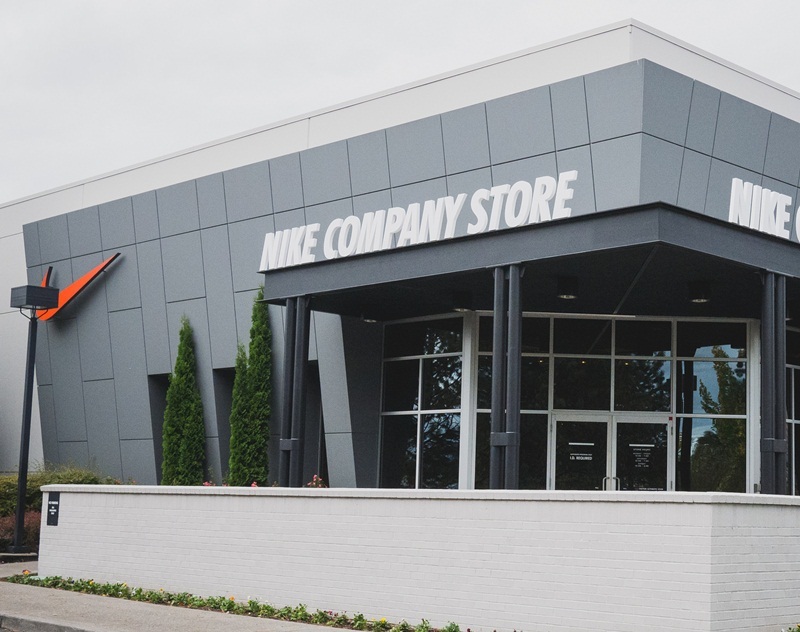
A coalition opposed to human rights abuses in China's Uyghur Region has called for the boycott of several brands that benefit from suppliers who apply the Chinese Communist Party's forced labor system.
ChinaAid has endorsed the Coalition to End Forced Labour in the Uyghur Region to support the Call to Action that encourages brands and retailers to sever relations with suppliers who benefit from Communist China's forced labor system.
According to ChinaAid, there are about 1 million to 1.8 million Uyghurs and other Turkic and Muslim individuals who are detained or enslaved by Chinese communist authorities and forced to produce goods to be supplied to various retailers across the globe. The Call to Action aims to prevent and help abolish China's use of forced labor of detained Uyghurs and other imprisoned minorities.
Communist China has caught the attention of human rights activists all over the world for its documented mass human rights abuses against the Uyghurs, Turkic and Muslim people in the Xinjiang Uyghur Autonomous Region in Western China. These abuses include mass surveillance, arbitrary detention, rape, torture, political "re-education," forced sterilisations, and forced labor.
The Call to Action sheds light on the various industries that benefit from the products made by slaves in Chinese concentration camps, such as artificial flowers, bricks, Christmas decorations, coal, cotton, electronics, fireworks, garments and footwear, hair products, thread, yard, textiles, and more.
The Coalition's Call to Action hopes to raise awareness to the brands who sell products that are made by slaves in Chinese concentration camps. These include U.K. brands ASOS and Marks and Spencer, as well as sustainable women's clothing brand Reformation - three of which have expressed commitment to addressing the issue.
Other companies that have not yet taken steps to end Uyghur forced labor include U.S. brands Abercrombie & Fitch, Hollister, American Eagle Outfitters, Inc., Gap Inc., Guess, Kohl's, Macy's Inc., and Nordstrom, Inc.
The list also names British luxury brand Burberry Group, French fashion house CHANEL, French luxury goods company Hermès International S.A., and American fashion company Ralph Lauren Corporation. Also included in the Call to Action list are athletic brands Adidas, Nike, Lululemon Athletica, and outdoor brands group VF Corporation, whose umbrella covers The North Face, Timberland, Dickies, Vans, and Jansport, among others.
The Call to Action also names PVH's Calvin Klein, Tommy Hilfiger, Heritage Brands, Tapestry's Coach, Kate Spade, & Stuart Weitzman, Inditex's Zara, Massimo Dutti, Berska, Oysho, Pull and Bear, Stradivarius, Uterque, Stradivarius, Lefties, and Kering's Gucci, Balenciaga, Yves Saint Laurent, Bottega Veneta, Alexander McQueen, Brioni, among others.
As a brief background as to why these brands whose products are made by slaves in Chinese concentration camps look to communist China for their supply, one has to look at the statistics. Up to 84% of cotton production from China comes from the Uyghur Region and 20% of the world's cotton comes from the Uyghur Region.
The Coalition to End Forced Labour in the Uyghur Region made this list public because these companies "have not yet taken all credible steps" in the Call to Action, which aims to identify "suppliers and sub-suppliers with any production facilities located in the Uyghur Region making apparel and other cotton-based goods" and "disengage from business relationships with any production facilities located in the Uyghur Region being utilised to make apparel and/or other cotton-based goods."
On the other end of the supply chain, the Coalition hopes that people will, in the meantime, stop buying these brands whose products are made by slaves in Chinese concentration camps.
Here's the complete list of companies who have not taken steps in agreement with the Call to Action to End Uyghur Forced Labor:
- Abercrombie & Fitch (Abercrombie & Fitch, Hollister Co., Ruehl No. 925)
- Adidas
- Amazon private labels
- American Eagle Outfitters, Inc.
- Anta Sports Products Ltd.
- Burberry Group PLC (Burberry)
- Burlington Stores, Inc. (Burlington)
- Capri Holdings Ltd. (Michael Kors, Versace, Jimmy Choo)
- CHANEL International B.V. (Chanel)
- Costco
- Esprit
- Fast Retailing (Uniqlo, Theory, Helmut Lang, J Brand, Comptoir des Cotonniers, GU, Princesse Tam-Tam)
- Foot Locker
- GIII Apparel Group Ltd. (licensed apparel for NFL, NBA, MLB, NHL)
- Gap Inc. (Gap, Old Navy, Banana Republic, Athleta)
- Guess
- Hanesbrands Inc. (Hanes, Champion, Playtex)
- Hermès International S.A. (Hermès)
- HLA Corporation Ltd.
- Inditex (Zara, Massimo Dutti, Berska, Oysho, Pull and Bear, Stradivarius, Uterque, Stradivarius, Lefties)
- Kering (Gucci, Balenciaga, Yves Saint Laurent, Bottega Veneta, Alexander McQueen, Brioni)
- Kohl's
- Kontoor Brands (Lee, Wrangler, Rock & Republic)
- L Brands (Victoria's Secret, Bath and Body Works, La Senza)
- Levi Strauss & Co. (Levi's, Dockers)
- Lululemon Athletica
- LVMH (Louis Vuitton, Dior, Fendi, Givenchy, Celine, Sephora)
- Macy's Inc. (Macy's)
- Next plc
- Nike, Inc. (Nike, Brand Jordan, Converse)
- Nordstrom, Inc. (Nordstrom, Nordstrom Rack)
- PVH (Calvin Klein, Tommy Hilfiger, Heritage Brands portfolio)
- Ralph Lauren Corporation (Ralph Lauren, Club Monaco)
- Richemont Group (Chloé, dunhill, Peter Millar)
- Ross Stores, Inc.
- J Sainsbury plc (Sainsbury's)
- Sears Holdings (Sears)
- Tapestry (Coach, Kate Spade, & Stuart Weitzman)
- Target Corporation (Target)
- Tesco plc (Tesco)
- TJX Companies Inc. (TJ Maxx, Marshalls, HomeGoods, HomeSense
- VF Corporation (The North Face, Timberland, Dickies, Vans, Jansport)
- Walmart Inc. (Walmart, Sam's Club, Flipkart, Bonobos)
- Walt Disney
- Wesfarmers (Kmart Australia, Target Australia)
- Woolworths
- Zalando































